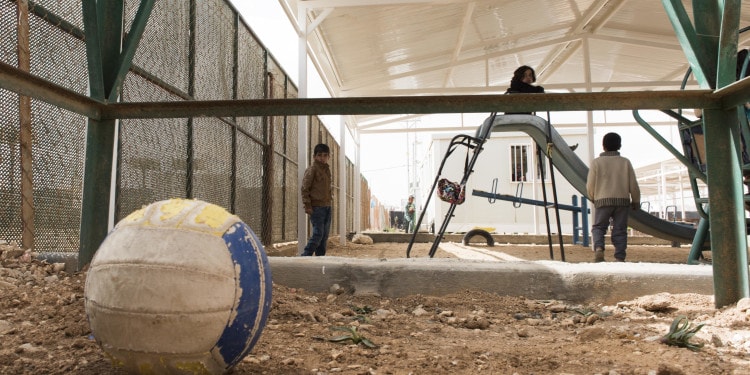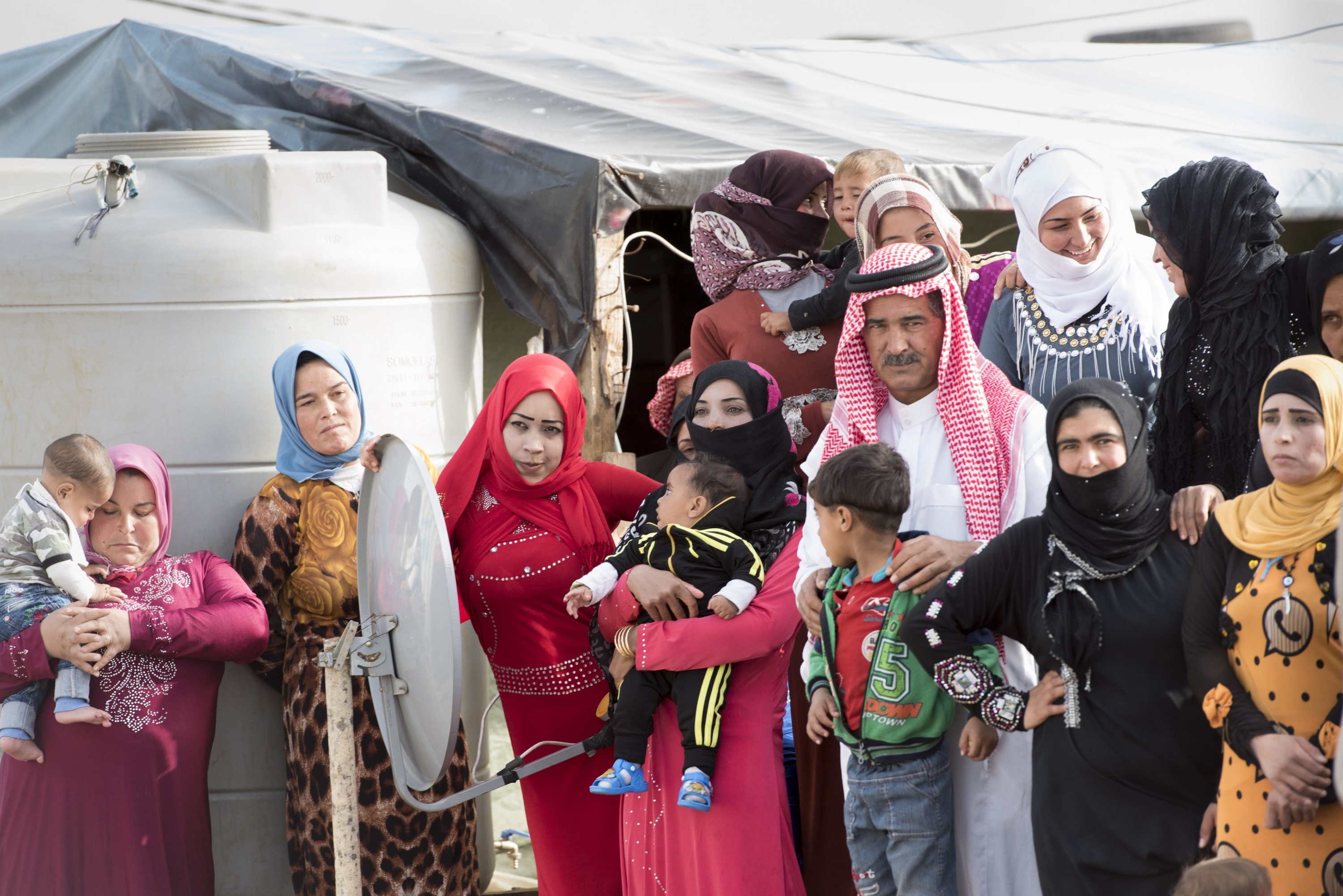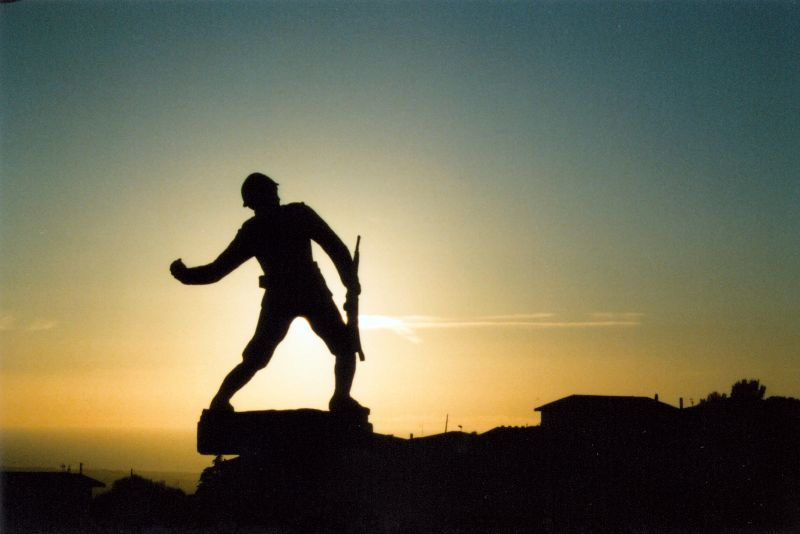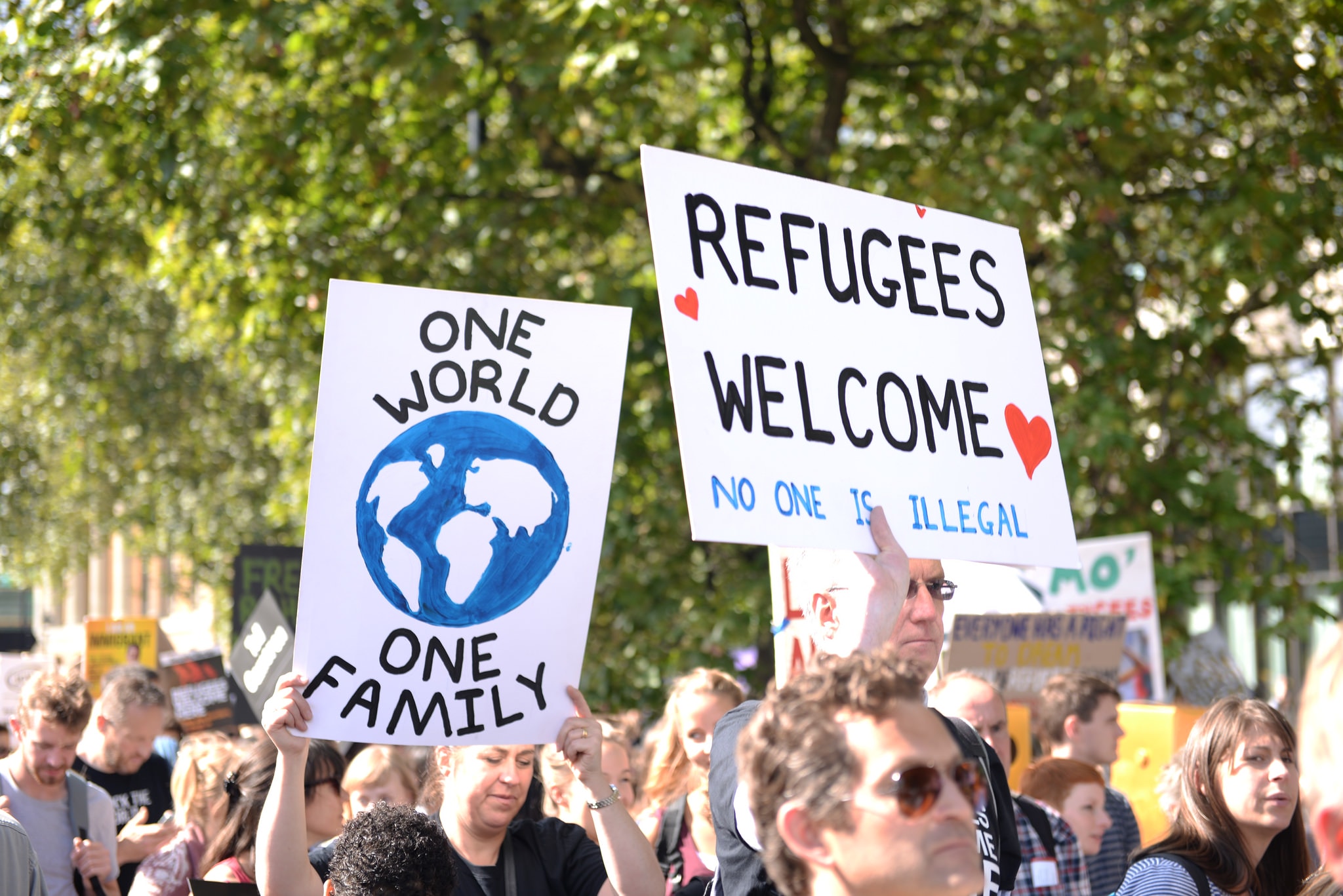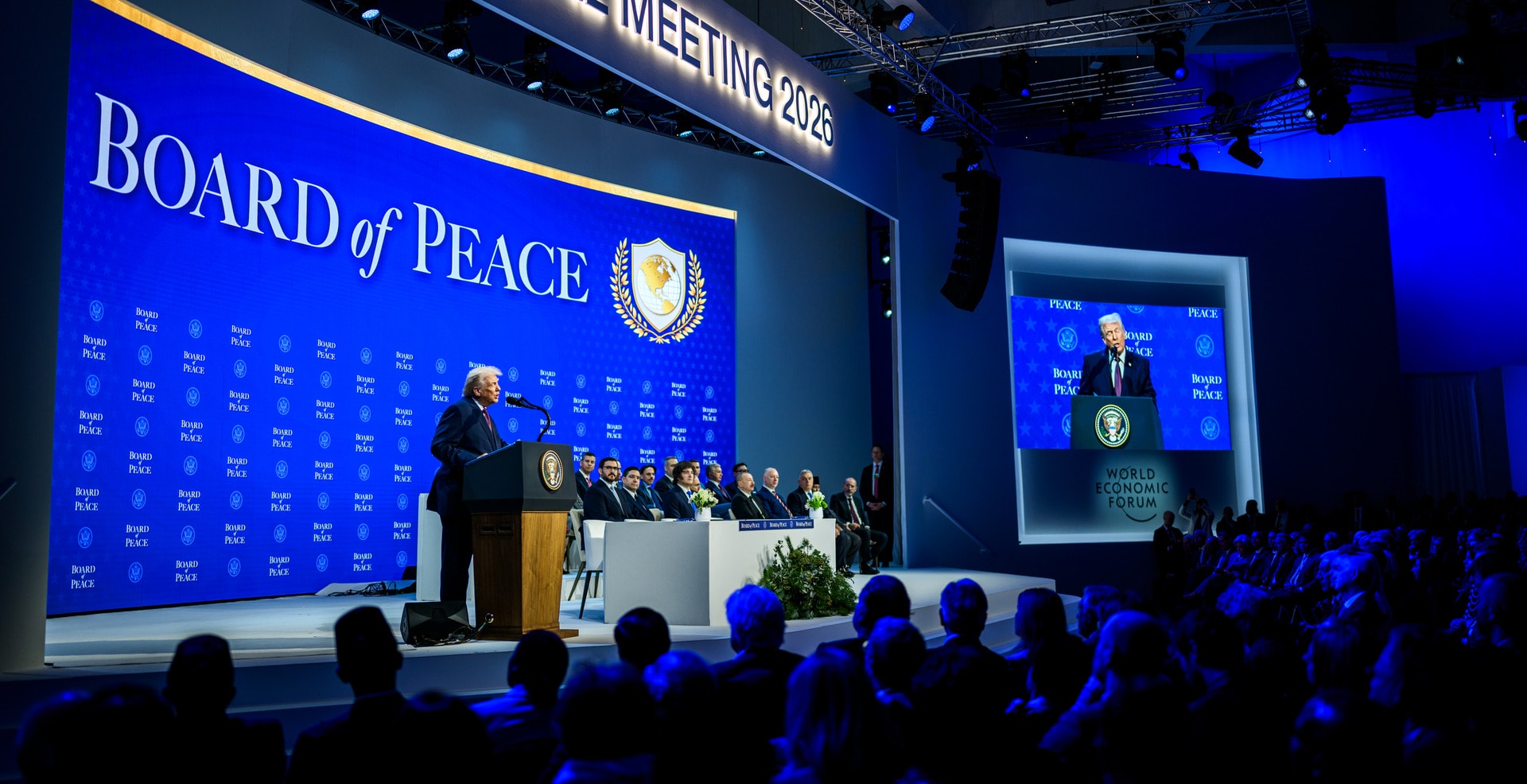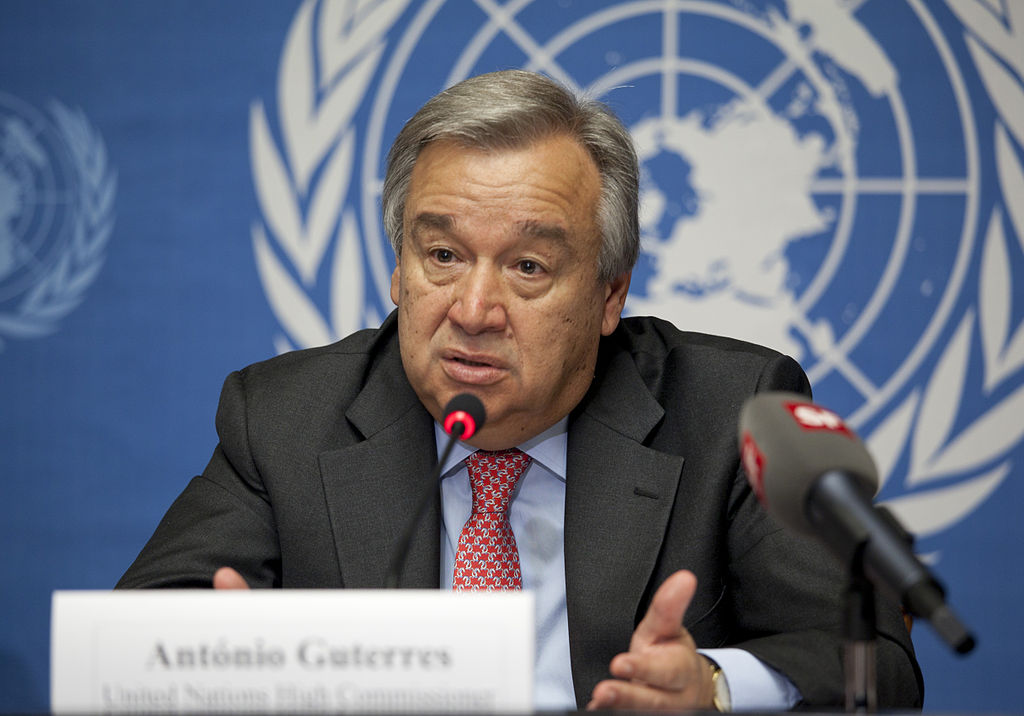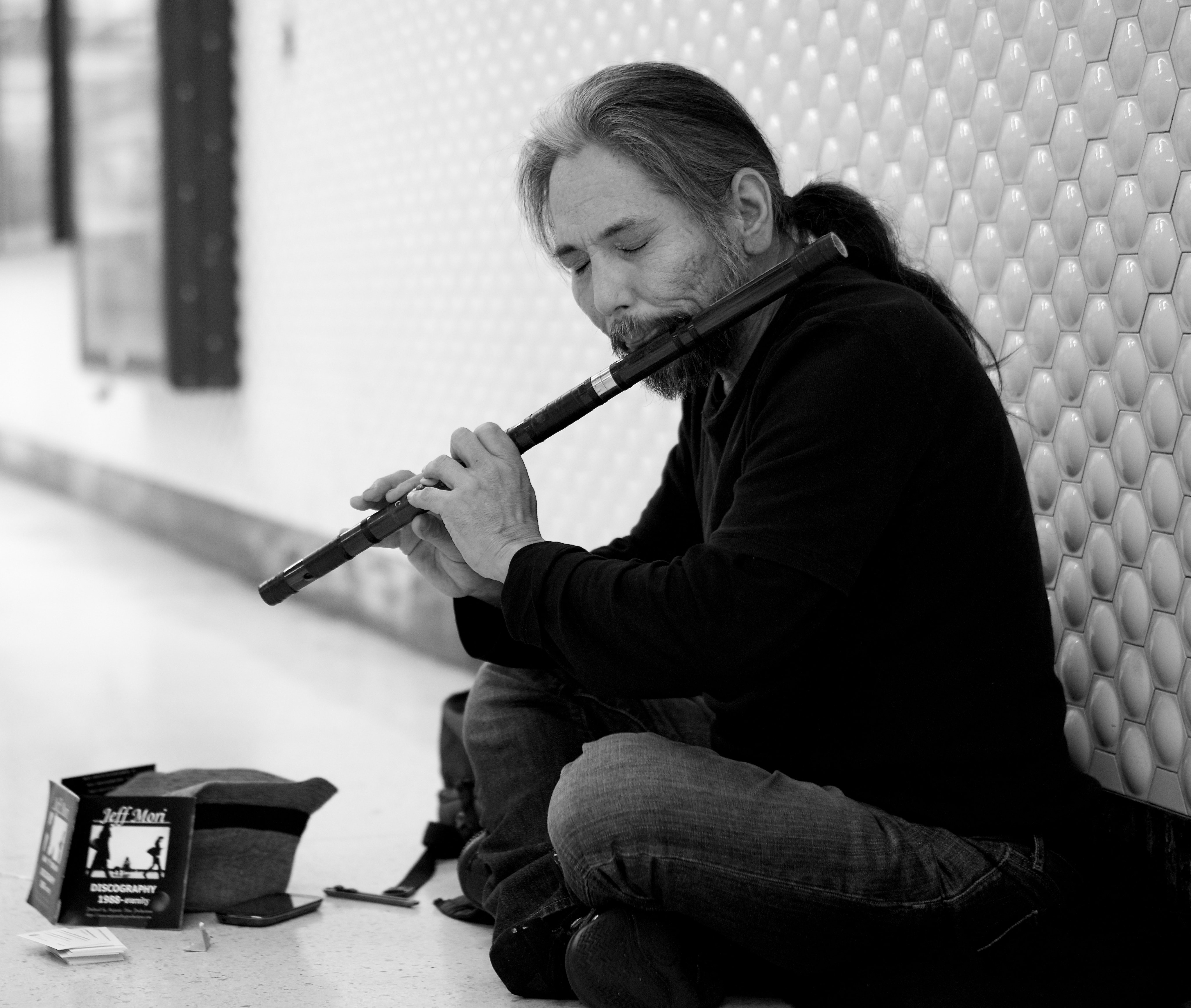What we are seeing in Europe is a consequence of the destabilization of the Middle East by the West that in turn has led to an acute destabilization of the West through the influx of refugees from the Middle East. The Second Iraq War, led by the United States, was a clear breach of international law, involving the so-called “coalition of the willing” and numbering some 43 countries, including a large contingent from Europe. The war and its consequences has set the Middle East aflame. European countries such as Bulgaria, Hungary, Poland or the Czech Republic seem to have forgotten their involvement in the Iraq war because today it is precisely these countries that have refused to accept refugees and are making their borders impassable for them.
Europe is not an innocent bystander to the humanitarian catastrophe unfolding before its eyes. A look at European foreign policy over the past 20 years suffices to recognize that refugee assistance is not a question of generosity but the European obligation to acknowledge its involvement in the origins of the refugee crisis.
The current mass exodus from Iraq, Afghanistan, Syria and the Maghreb countries did not occur ex nihilo. On the contrary, it is the result of a process of impoverishment of the Middle East and North Africa that began more than 20 years ago, the starting point of which was paradoxically the creation of institutions of global development and international financial aid. With the end of the Cold War and the collapse of the Soviet Union, neo-liberalism boomed and all alternatives to growth-oriented capitalism were declared failures.
Captives to this ideology, the World Bank and the International Monetary Fund required debtor countries in the developing world such as Sudan, Somalia and the Republic of Central Africa to institute structural reforms, including the privatization of the agricultural sector and public companies, which were inadequate and crippled these countries long-term domestic productivity. Once developing nations, these countries became failed states.
The fact that approximately a billion people were condemned to abject poverty — which no one seemed to take notice of — couldn’t fail to have consequences. Brutal civil wars like the protracted civil war in the failed state of Sudan or the war in the failed state of Afghanistan or the terror networks in Iran have for decades provided an ideal basis for recruiting new members; war has robbed these people of any prospect of a decent life. Terror organizations such as Al-Qaida or ISIS offer those who have nothing a perspective—even if it is one based solely on retribution.
This was suddenly apparent and painfully visible in the attacks on the World Trade Center on September 11, 2001.
In the Photo: Residents at a Syrian refugee camp in the Beqaa Valley of eastern Lebanon prepare to greet Secretary-General Ban Ki-moon during his visit. Photo Credit: UN Photo/Mark Garten
Interference in the sovereignty of marginalized states through military intervention or targeted financing of violent conflicts resulted in a hatred of the West that expressed itself in the direct attack against a landmark of capitalism in the heart of the greatest power of the western world, with all its symbolic significance. Questions of the origin of this hatred were drowned out by calls for retaliation that couldn’t have been shriller.
The deep blow to American pride had to be met, in accord with the logic of a military power, with a demonstration of absolute force, which resulted in global war on terrorism. In Afghanistan, this meant a large-scale military action under the leadership of the Americans, who propagated this as the only possible safeguard for the western world to protect itself from terror against a largely invisible and hard to localize enemy in Hindu Kush. But the “war on terror” was less a safeguarding, as it was a face-saving measure; the western world, despite its military strength, had to accept that it appeared defenseless against an enemy that operated outside the classical rules of military engagement. Instead of facing an opposing army, it was confronted with loosely connected terror cells, which were united more by ideology than by organizational structures.
The fact that Osama Bin Laden was shot years later by U.S. Special Forces in Pakistan rather than in Afghanistan shows that wide-scale war is not an effective means to combat terrorism. After having already had its infrastructure destroyed by the Russians, the war in Afghanistan again laid the country in ruins. The American-led “war on terror” with its high profile media campaign resulted neither in an end to the war on terrorism nor to a positive development of Afghanistan, which could only have been brought about by social, economic and political empowerment.
From 2005 to 2015 alone, the Americans spent 1.425 trillion USD in the Afghanistan and Iran wars. In the Iraq war the protection of oil reserves in the Gulf region rather than the fight against terrorism (as in the war in Afghanistan) was a central motivation. The Bush administration needed to counteract Chinese influence in the Middle East after the forecast of a huge increase of Chinese oil imports by the International Energy Agency (IEA), which had predicted a rise in the Chinese demand for oil from around 6% of world supplies in 2001 to around 9% by 2007. The explanation of Vice President Dick Cheney that the securing of worldwide oil reserves was a question of national security not energy security paved the way for the political acceptance of the Iraq war domestically. At the same time, it was geopolitically essential for the United States to maintain its military presence in the Gulf region. This resulted in a war against Iraq without a UN mandate; a result manifestly not derived from the threat of weapons of mass destruction in Iraq, but as we know now, from putting imperial market interests first.
Alternatives to War
The “global war on terror” was a form of counter terrorism that had no international parallel and went far beyond the bounds of international measures, ignoring the binding nature of International Human Rights (IHRL). The American prison camp in Guantanamo was organized to operate outside the bounds of constitutional authority and it is implausible to defend such an action based on the right to democracy and freedom, since even accused terrorists are entitled to legal due process. The Iraq war is not a war of American self-defense in the sense of article 51 of the UN Charter. Moreover, the argument that the coalition’s intention was to destroy weapons of mass destruction could not be sustained as the UN special commissioner Hans Blix demonstrated in a report of several thousand pages.
Events that were set into motion more than 20 years ago have resulted in a precarious situation in Afghanistan, a completely destabilized Middle East and an enormous number of failed states and people in flight. Nevertheless, it would be erroneous to blame the United States alone for the increase in Islamic terrorism, even if the military-dominated foreign policy of the Americans and their allies, including Europe, have dramatically exacerbated the global risk of terrorism by consistently breaking international law; the fact is that every potential form of extremism is based on the misery of poverty.
Only a shift toward a more equitable distribution of resources can prevent terrorism in the long run.
Photo Credit: Gianpiero Addis CC2.0
Only a shift toward a more equitable distribution of resources can prevent terrorism in the long run. An investment in the reconstruction and not destruction of countries like Afghanistan, in which young people are driven into the hands of religious fanatics by poverty and hopelessness, is the only alternative to war but for reasons of Realpolitik has never seriously been considered. The $1500bn of American investments in Afghanistan and Iraq in infrastructure, education and economic development, has certainly contributed to the reduction of terrorism worldwide and exemplifies the spirit of peacekeeping and democracy-oriented values. Yet rather than helping people help themselves from the beginning, public calls to meet force with force led to investing huge sums of money in retaliation, which led to shriller calls from false prophets and religious fanatics preaching hate as a panacea and advocating an Islamic political hegemony.
The expansion of foreign policy options offered western governments many opportunities to form intelligent and responsible alliances, in which the promotion of social and economic development would go hand-in-hand with protecting human rights. But the expanded scope of foreign policy was used to track the interests of Realpolitik, resulting in dubious alliances with regimes such as Saudi Arabia, Qatar and Uzbekistan that didn’t correspond in the least to western or European human rights interests.
Related article: “EUROPE’S FLIGHTS FROM THE REFUGEE CRISIS”
At the end of 2010, a protest movement within the Arab world developed from within the totalitarian regimes of Maghreb countries, with the hopeful appellation “Arab Spring,” calling for the establishment of socially just and democratic political systems. As a consequence of deep economic and political crises in these countries, a young generation of Arabs who saw no future for themselves took to the streets to protest against the corruption, mismanagement and an acute lack of perspective they saw all around them. Using new media and social networks such as Facebook as its primary platform for communication, the protest movement spread quickly across North Africa.
But the Arab Spring movement failed because the young and dedicated demonstrators lack a formal organizational structure or the apparatus of a political party. This lack of organizational structure meant that instead of a fundamental political reorganization, there was a takeover within these countries by the military or by organized fundamentalist groups, such as ISIS.
An international alliance of a number of Western and Arab states (plus Turkey and Russia) has tried, since September 2014, to use military force to put an end of the marauding ISIS troops. But the worsening security situation in Syria, in Iraq, Afghanistan and North Africa has led people in the affected areas to flee en masse in the face of Islamic terror and war.
Many of these migrants are currently at Europe’s doorstep and seek protection from the misery of hunger, persecution and war to which the West has contributed. The fact that more and more young people have fled to Europe from Maghreb states because of their difficult economic situation and lack of prospects for the future makes it clear that in the age of globalization there is only one world to which we all belong, even if we maintain the divisions between the first, second and third world.
“Security” in the European Union
Today’s security apparatus in the European Union and the United States has resulted in a contradictory interplay within these democracies of suppression and the limitation of civil rights to satisfy the need for security from terrorist attacks through maximum control of individual citizens. The pressure on the EU has clearly increased and the expectations of migrants who come to Europe are immense.
Not only the closing of Europe’s borders has shaken the image of a humanitarian Europe but also the absurd declaration of countries like Afghanistan, in which civil unrest obviously prevails, to be safe or temporarily safe countries of origin. The current change in the handling of refugees in European politics is a consequence of the nationalist, misanthropic ideas that have taken root in the minds of Europe’s political elite.
In such exceptional circumstances, Europe threatens to become an enclosed fortress, sinking deeper and deeper into crisis. The fear of “foreign infiltration” fueled by some politicians and the media is unfounded, statistically absurd, irrational and inhumane. What is even more frightening is the public debate on the issue, which reveals a racist and xenophobic mindset within our society.
Questioning the right to asylum, which is a key element in distinguishing between civilized and barbaric societies, represents a monumental regression for the European Union and exhibits a corresponding lack of human empathy that borders on fascism.
Photo Credit: Flickr/Ilias Bartolini CC2.0
The time seems ripe for demagogues who wish to capitalize on the fears of the many and the plight of refugees. Particularly worrying is the fact that these seeds of fear have fallen on fertile ground. The silent majority is no less dangerous than those whose public xenophobic statements are directed to creating a more intolerant society.
The steadily growing number of attacks on refugees that largely go unprosecuted testifies to the fact that there is greater support for right-wing violence in our society than we care to imagine. We have to think about what all this means in the final analysis before it is too late.
First, terror and state counter terrorism not only kill people on both sides but also progressively rob us of our civil liberties. Secondly, people fleeing from war and terror are subsumed under the general rubric of “migrants” or “refugees” robbing them of their individuality and dignity. The craftsmen, teachers or doctors who arrive as fathers or mothers with small children or infants, usually with no more than a suitcase with all their worldly possessions, have not only lost their homeland but also their property and social status. It is our failure to perceive their plight that leads us to treat them as have-nots.
In a globalized world, long-term security interests can only be guaranteed by a just distribution of resources and wealth rather than on the basis of military might. We have to understand that in a free democratic institution like the European Union, liberty applies to everyone: to those to hold liberty dear even under the most difficult conditions and to those who want to limit the liberties of others or even dispense with them entirely. In extraordinary times a constitutional democracy is characterized by its unwillingness to capitulate to extremists even under exceptional situations.
The capitulation of the rule of law in Europe is now in full swing and a sad chapter in the history of Europe is currently being written. The fact that this capitulation is taking the form of people stranded at the borders, the burning of refugee camps and a flood of right-wing propaganda represents a humanitarian catastrophe and is nothing short of intolerable.
Those who build border fences rather than developing solutions to bring the current problems under control will eventually position military guards along Europe’s long external borders and— contrary to our common sense of human decency—shoot at incoming refugees.
_ _
EDITOR’S NOTE: THE OPINIONS EXPRESSED HERE BY IMPAKTER.COM COLUMNISTS ARE THEIR OWN, NOT THOSE OF IMPAKTER.COM.
Featured Image: UN Photo/Mark Garten


